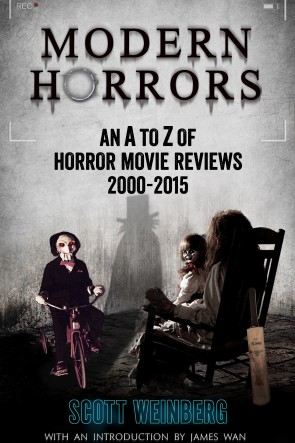Exclusive Review: THE SCOPIA EFFECT (2014){0}
Shouldn’t death be a once in a lifetime experience?
Does anyone (here in the West, at least) seriously believe in reincarnation any more? To put it glibly, the once-popular concept of past lives is not what it used to be. The New Age therapeutic process of past life regression (PLR) is now filed away with healing crystals, tinfoil hats and – soon, with any luck – homeopathy. But, as Darren Aronofsky’s The Fountain, Jonathan Glazer’s Birth and Apichatpong Weerasethakul’s Uncle Boonmee Who Can Recall His Past Lives demonstrated, you don’t have to believe in reincarnation to weave a fascinating film narrative from the concept – or to appreciate the results.
On the surface, British writer-director Chris Butler’s extraordinary feature, The Scopia Effect, is not that difficult to explain: Basia (Joanna Ignaczewska), a troubled, Sia-haired Polish woman living in London, undergoes hypnosis sessions with her psychoanalyst (Louis Labovitch), but instead of unlocking her unconscious memories, reveal a series of past lives, all of which seem to have ended in violence. The resulting narrative is a mind-bending, time-travelling journey which, if fully given into (like hypnosis), is likely to take root in the viewer’s unconscious. It’s a profound, breathtaking and utterly astonishing achievement, both as a narrative concept and an independently-made first-time feature. It marks the arrival of a major new filmmaking talent in much the same way as David Lynch’s Eraserhead, Christopher Nolan’s Following or Darren Aronofsky’s π, with cinematography, editing, sound design, music and performances as assured as its scope, ambition and narrative sweep.
Much of the credit for the film must go to Butler, who gave up a successful career in brand advertising to make The Scopia Effect, and assembled an impressive roster of collaborators behind the camera and in post-production, including an original score by Florence + The Machine’s Christopher Hayden. Yet the film would be nothing without Warsaw-born, Strasberg-trained method actress Ignaczewska, who commits herself body and soul to the role, and is utterly convincing in it. Filmmakers with a background in the world of advertising (Ridley Scott comes most easily to mind) are better known for a commitment to visual style than for drawing strong performances from their actors, but Butler’s skill is such that, while The Scopia Effect is one of the most visually striking in recent memory, he never lets the visuals overwhelm the performances.
It certainly won’t be everyone’s cup of tea, but if you are intrigued by the idea of a first-time filmmaker fit to be mentioned in the same breath as Lynch, Malick, Aronofsky – or if you dug films like Primer, Upstream Color and Under the Skin – you might just be blown away by The Scopia Effect.
Whether or not Butler will ever top his dazzling debut remains to be seen, but that’s an irrelevance, because The Scopia Effect demands to be seen.
David Hughes (@DavidHughesTwit)
THE SCOPIA EFFECT is released exclusively on iTunes (UK) on April 27.









